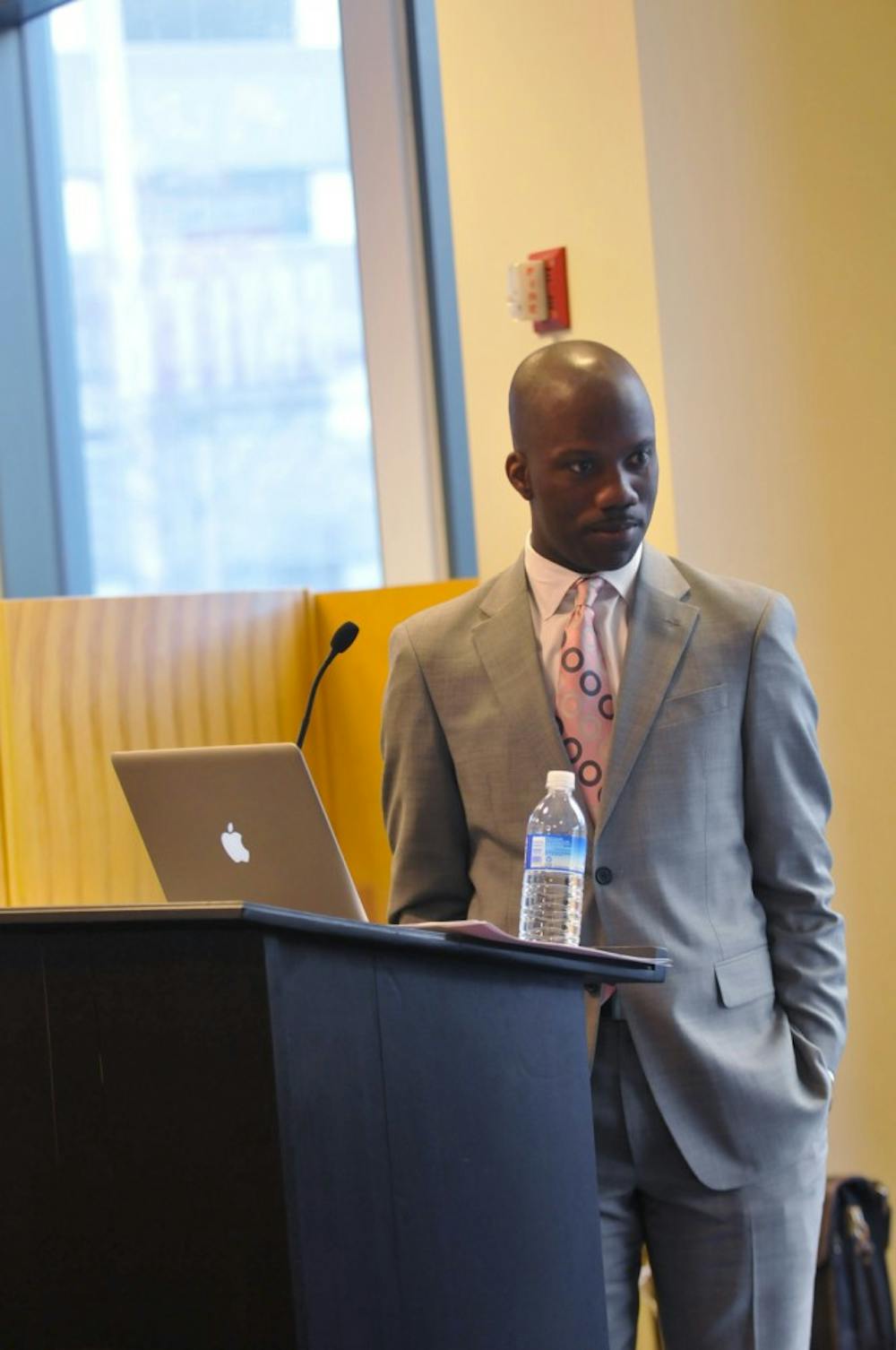College senior Collin Williams said he has sometimes felt like an outsider at Penn.
“My $50,000 in tuition is not getting me exactly what $50,000 are getting white people,” he said.
On Tuesday, Graduate School of Education professor Shaun Harper moderated a panel discussion, “How Black Men Experience and Succeed in College: Responses to the Harper Book Collection,” that featured Williams, two other Penn seniors and three students from the Community College of Philadelphia and Temple and Drexel universities.
Black undergraduate students across the United States are often less prepared for rigorous college academics, serve in fewer leadership positions and earn lower grades than their peers, according to Harper.
Conversations and research about black men in college are often centered on why they are “so disengaged and why there is such a low percentage of them in institutions of higher learning,” Harper said. “No one ever asks: ‘How did they do it? How were they able to be successful?’”
Panelists answered questions on how they navigate college, cope with negative stereotypes, seek support and combat instances of racism.
Williams noted that when students hand out flyers on Locust Walk, he is often not targeted for certain events that his white peers are.
College senior Khaliff Davis said Penn does not do enough to address cultural differences on campus. As a student from the South, Davis said he experienced huge culture shock at Penn through the predominantly “Jewish and elitist culture.”
Many of the panelists said they turn to black centers on campus such as Makuu for support.
University Chaplain Chaz Howard said there is a stereotype at Penn and colleges nationwide that black students are accepted through athletic merit or affirmative action. This conception is often perpetuated by the media.
“The image of a black collegiate is not one of lawyers, doctors or businessmen,” Howard said. “People will ask: ‘Do you go here? Do you belong here?’”
However, not all black students at Penn have this experience.
College and Wharton junior Bryce Frost said he does not feel subject to any racial barriers.
“I feel like I’m held to the same standards,” he said. “I don’t think about my race that much.”
In 2002, black men comprised 4.3 percent of students enrolled at higher education institutions across the country, according to a policy report released by the U.S. Department of Education. This number has remained the same since 1976.
Harper’s study published in 2006 shows that black collegiate students come from diverse geographical, socioeconomic and cultural backgrounds. The study, one of the largest of black undergraduate men, surveyed and interviewed black men at 42 different colleges and universities across 20 states.
Currently, Harper is compiling a report evaluating public four-year colleges and universities nationwide on “equity indicators for black male undergraduates,” he said. The report is to be published by the Congressional Black Caucus.
“[Harper] is doing very important research, which will affect universities across the country,” said Howard.



